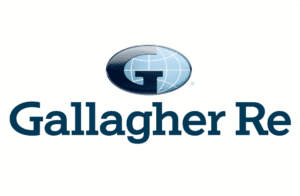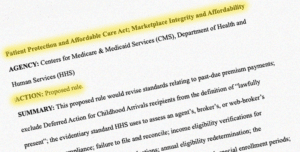QBE report warns of emerging risks amid ‘AI rush’ in healthcare

QBE report warns of emerging risks amid ‘AI rush’ in healthcare | Insurance Business Canada
Technology
QBE report warns of emerging risks amid ‘AI rush’ in healthcare
It is calling for effective regulation in the industry
Technology
By
Althea Javellana
Artificial intelligence (AI) is reshaping healthcare, supporting drug development and streamlining medical trials. However, these advancements come with various risks, including cyber threats on large-language models (LLMs) and data biases.
A new report compiled by Control Risks from QBE has highlighted the exposures that come with what it calls an “AI rush” in the healthcare industry, as organizations race to integrate AI into their operations. The report has called for consolidated standards for AI use in the face of emerging risks.
“With consolidated standards and effective regulation, the life sciences industry will be able to harness the potential of Artificial Intelligence,” said Alex Bell, senior underwriter at QBE. “Far from stifling innovation, this clearer environment will help grasp the opportunities that machine learning can offer for human health.”
Emerging risks amid ‘AI rush’ in the healthcare sector
According to the report, several risks should be monitored. These include potential cybersecurity threats, where hackers could target LLMs or compromise critical data, algorithmic biases that may affect personalized medicine, and device malfunctions that could lead to incorrect diagnoses or treatments.
As AI reshapes the healthcare landscape, it also brings together technology innovators and traditional medical professionals, leading to potential cultural clashes, the report warned.
This dynamic makes setting industry-wide best practices and standards crucial. The World Health Organization began addressing these challenges by issuing guidelines last October to govern AI use effectively.
The rush to adopt AI technologies can also divert essential resources and impact safety protocols, necessitating updated skills for drug development and healthcare provision.
Where can AI integration improve life sciences?
According to Control Risks’ analysis, AI’s use in machine learning is advancing the personalization of medical treatments and devices, ushering in a new patient-focused era with its benefits and inherent risks.
The integration of AI in life sciences is primarily beneficial in four key areas:
Drug discovery: AI can drastically shorten the development time and reduce costs for new drugs. Traditionally, developing a drug could take 10 to 15 years and cost over a billion dollars. AI algorithms can now process vast molecular libraries, predicting the effectiveness and safety of potential drug candidates, thus accelerating the early stages of drug development.
Clinical trials: Research efficiency has declined over the past six decades, with fewer drugs being approved per research dollar spent. AI can refine patient recruitment and trial methods to yield quicker, more consistent results. Predictive models also play a crucial role in identifying biomarkers that forecast treatment outcomes, improving decision-making throughout clinical trials.
Personalized medicine: AI is pivotal to crafting custom treatment plans based on individual genetic profiles, lifestyle, and disease characteristics. It analyzes genomic data to pinpoint biomarkers linked to disease risks and treatment responses. This capability extends to personalized dietary, exercise, or stress management recommendations through connected wearable devices.
Customized medical devices: AI, combined with 3D printing technology, allows for the creation of tailor-made implants and prosthetics. This customization enhances patient comfort and device performance while reducing the risk of complications.
Do you have thoughts on AI’s growing role in healthcare and the risks associated with this? Share your views below.
Related Stories
Keep up with the latest news and events
Join our mailing list, it’s free!







